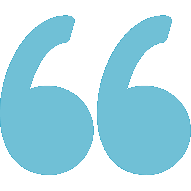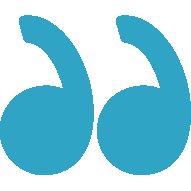Summary
Siram Veolia, Italy’s leading group for the efficient management of energy, water and special waste, supports public and private clients on the path to ecological transformation through sustainable and technologically innovative solutions.
Goals
- Spreading the corporate data culture, shared across functions
- Ensuring data quality, aligned with business objectives
- Increasing efficiency of data management processes
Data is at the heart of Digital Transformation, and Siram Veolia believes it is critically important to better manage business operations and decisions.
Where Data Governance programs often arise as a response to regulatory constraints, whether peculiar to the industry sector or valid for all markets (e.g., GDPR), for Siram Veolia the decision to adopt a Data Governance program has the objective of improving efficiency in the management of data throughout its lifecycle, from the moment of its generation, to the various transformation processes, to its final use for making operational (including automated) and strategic decisions. At this link you can read the communication made at the start of the project: Linkedin Post
Considering the objective, a Data Governance framework was designed, with the active involvement of the Business functions and the Digital Business & Technology team, including Data Governance roles and responsibilities, processes, and the Blindata platform. Specifically, doDigital, Blindata’s partner for the design of the organizational and operational models of Data Governance, was responsible for the implementation of the first two components of the framework, leveraging DAMA (Data Management Association) principles and guidelines, while Blindata provided the SaaS platform and technological know-how to systematize and automate metadata collection and Data Quality monitoring activities according to the principles defined within the overall framework.
Solution

Realizing the strategic importance of data, we embarked on a path, both methodological and applicative, of Data Governance, finding in the collaboration between doDigital and Blindata the right directions of both framework and platform. The correctness of data-driven decisions relies on the reliability of the data, therefore, the data governance pathway provides the necessary support for certified and easily identifiable data.
Pietro Cupertino - Head of Digital Platform


There is a growing perception that it is a business advantage to analyze and manage information, no longer seen as data to be maintained on storage media. In order to guide business decisions, however, the data must be governed, approved, and of high quality. We found in the collaboration of doDigital and Blindata, the ally to begin in Siram Veolia this long path of digital and cultural transformation in order to become a "Data-Driven company"
Vincenza Taverniti - Data Governance

The project team first addressed the organizational aspect, defining the different roles involved (Data Stewardship), belonging both to Business areas and IT functions. To set up the doDigital Data Governance framework within the organization, the first step identified the characteristics of the areas involved considering the consistency with the guidelines coming from the parent company Veolia.
Once roles and responsibilities (Business and IT) were identified, operational processes were put in place both to enable the mapping of objects and related metadata and to keep the metadata itself up-to-date. Assigning roles involves configuring and assigning permissions on Blindata and drives the notification process (Issue Management). Once the owners of the different data domains were identified, the mapping of the different Business Entities began. Each Business Entity was assigned to a Business Owner, who was responsible for mapping the Business Terms. This completed the definition of the Business Glossary.
Next, the automatic technical metadata collection function was enabled by connecting the Blindata Agent to several source systems, based on Oracle and Google Big Query. In this way, the Data Catalog was constructed and, through Blindata’s SQL Query Parser, the Data Lineage was automatically reconstructed. At the same time, using a bottom-up approach, the different reports used were analyzed, remapping them to the elements of the Business Glossary (Vertical Lineage).
This has resulted in a 360-degree mapping of data, allowing the browsing from technical metadata to business metadata and vice versa, creating a continuum of shared data knowledge.

